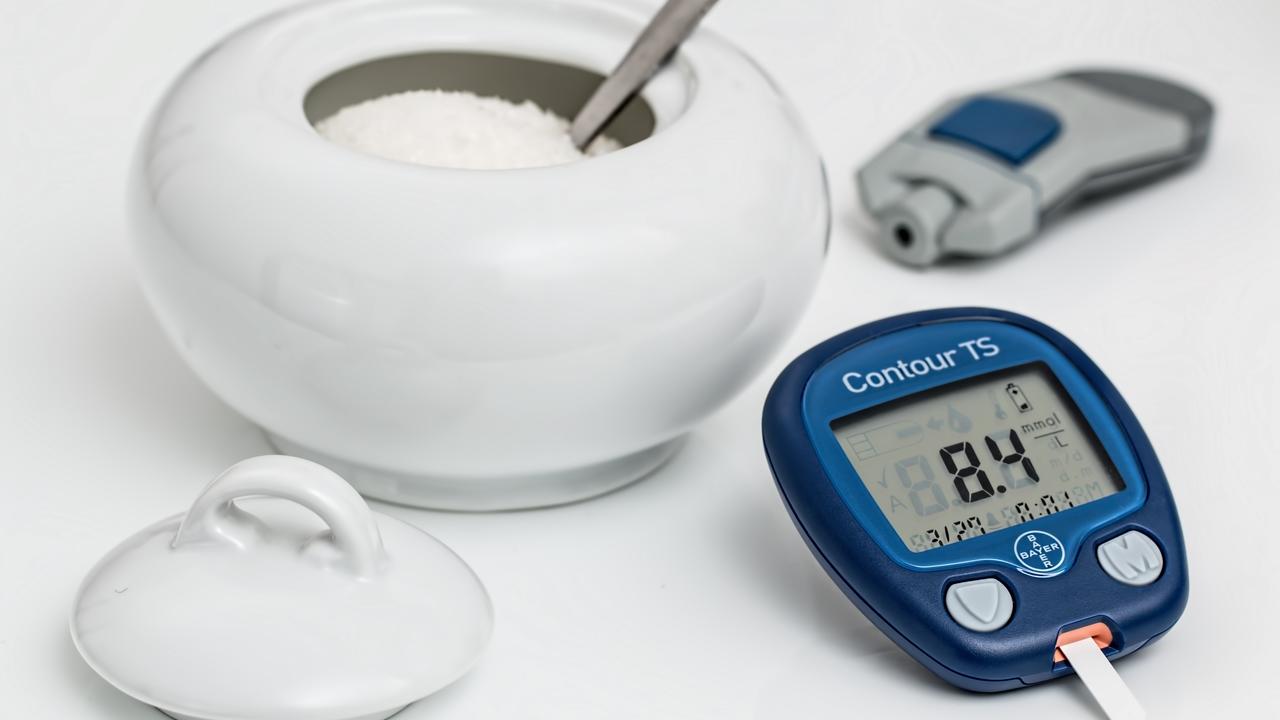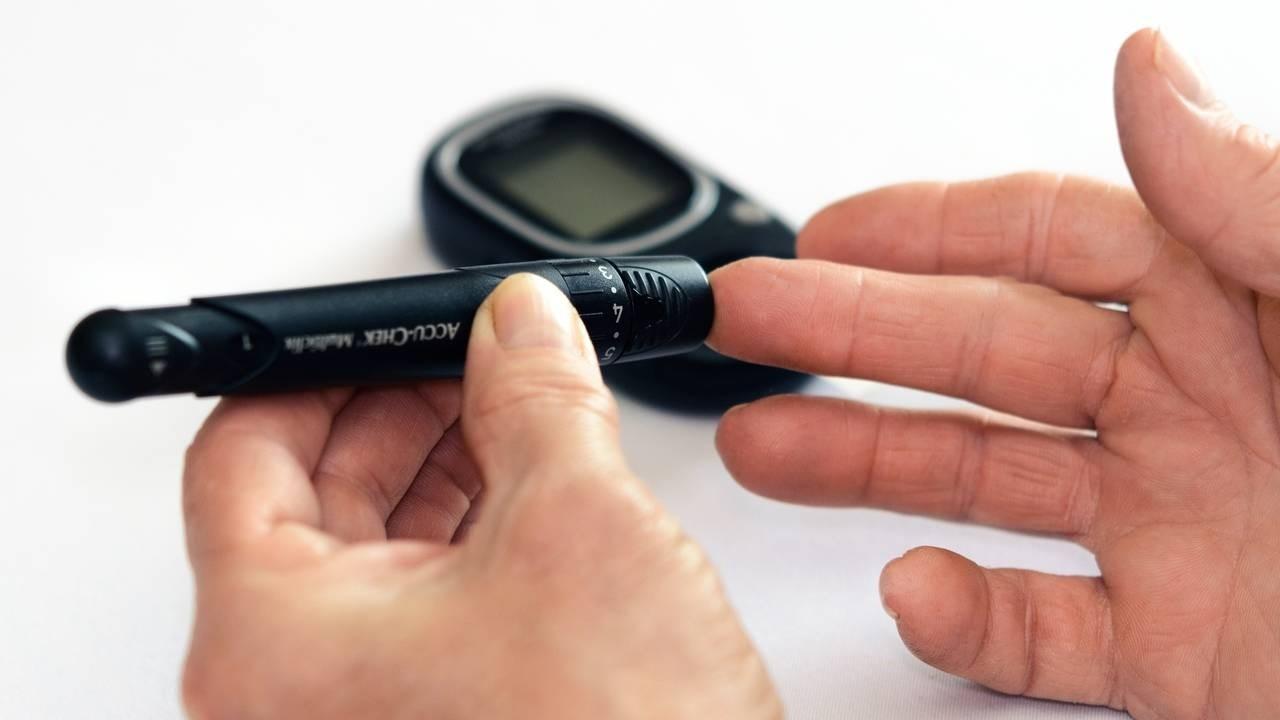Catching up with Karyn
What's So Funny About Blood Sugar Control?

 For a long time, we've heard that too much sugar can make you larger. But did you know that too much sugar can also make you smaller? Researchers from the Australia National University have found that people who consistently experience high blood sugar levels (although not necessarily high enough to trigger concerns of diabetes or even pre-diabetes) are more likely to experience shrinkage of the hippocampus and amygdala.The health and size of these two brain structures has significant bearing on the development of many cognitive concerns, including Alzheimer's and dementia.
For a long time, we've heard that too much sugar can make you larger. But did you know that too much sugar can also make you smaller? Researchers from the Australia National University have found that people who consistently experience high blood sugar levels (although not necessarily high enough to trigger concerns of diabetes or even pre-diabetes) are more likely to experience shrinkage of the hippocampus and amygdala.The health and size of these two brain structures has significant bearing on the development of many cognitive concerns, including Alzheimer's and dementia.
In other words, blood sugar control is not just for diabetics anymore! Keeping your blood sugars in the ideal range (this varies, of course, with individual circumstances, but numbers between 80-100 are good to see!) is great news for anyone who wants to protect their mental health and intellectual agility.
There are many ways to control your blood sugar. Watching your diet and exercising regularly can do great th...
What's So Funny About Diabetes: Go For the Gold

I admit it: I’m an Olympics junkie! Right now, as I’m writing these words, they’re showing Usian Bolt receive the Gold Medal. He has once again been recognized as the world’s fastest man. And let us give credit where credit is due: running 100 meters in less than 10 seconds is pretty amazing!
Do you know what else is amazing? Successfully managing your diabetes, day in and day out, week after week, month after month, year after year after year. We hear so much about the dedication and determination of Olympic athletes – but hardly a peep about the drive, skill, and strength it takes to take care of yourself when you have diabetes.
Well, that’s enough of that! Today, in honor of the Olympic Games, I invite you to award yourself with an honorary Gold Medal. You may not be running 100 meters in 10 seconds – but you’re running a marathon race against your pancreas, and it never ever stops.
The good news is that you’re winning. When it comes to taking care of your health, nobody wants i...
Summer Fun and Diabetes

School’s out for summer! I don’t know about you, but summer is one of my favorite seasons. It’s the one time of year when we seem to have the most time and freedom to do one of the best things possible for diabetes management – having some fun!
Effective diabetes control means making healthy lifestyle choices. You know the routine – a healthy diet, exercise, and regular blood sugar testing. The trick is making the routine more fun.
Having fun is good for you! It turns out that having a good time, experiencing positive emotions, and especially laughing all have health benefits. You’ll lower your stress levels, improve your blood pressure, and enjoy better blood sugar control. (That’s only scratching the surface: you can read more about this in What’s So Funny About Diabetes?: A Creative Approach to Coping with Your Disease )
Here are some great ways to add healthy fun to your summertime routine:
- Dance: Dancing is lots of fun and great exercise. Get up and shake your groove thing ...
What’s So Funny About Diabetes? The Power of Play!

If you’re searching for an easy, effective, all-natural way to manage your diabetes more effectively, I’ve got great news for you. You’re in for a good time! Researchers in the field of psychoneuroimmunology have been working steadily to prove that experiencing positive emotions leads directly to improved health. Having fun, it turns out, is good for you.
Specifically interesting for people with diabetes is research that shows enjoying humor can help control glucose spikes after a meal. Blood sugar control is obviously of high interest. Another factor that impacts our blood sugar is our stress levels: the more stressed out we are, the harder it becomes to control blood sugar levels.
One of the world’s best stress busters is play. We love to play when we’re children, but as we grow up, we stop – fearful, perhaps, that playing makes us seem less serious, less adult, less mature. To answer that, I’d like to quote from Robert Bellah’s very serious book, Religion in Human Evolution: From ...
What’s So Funny about Father’s Day?

Not sure what to get Dad this Father’s Day? The best present you can give is the gift of laughter, according to humor expert, author, and professional speaker, Karyn Buxman.
“Laughter improves our mood and lifts the spirit,” Karyn said, “and it can also make us healthier. The latest research continues to reveal the many physical and mental health benefits that come from sustained laughter. Humor can help us lower our blood pressure, maintain healthier blood sugar levels, increase circulation, and manage stress more effectively.”
Buxman draws on her healthcare background as an RN to advocate for the use of humor as a tool in chronic disease management. “Diabetes and heart disease are at epidemic levels in this country, and older men – we’re talking about Dad here! – are being affected every single day. Either they’re struggling with diabetes or heart disease themselves, or they love someone who is.”
Father’s Day is a great opportunity to increase the amount of health-giving humor in...
What’s So Funny About Diabetes: Is SPAM Part of Your Healthy Diet?

If you’re interested in using humor to more effectively manage your diabetes, it’s good to know that you’ll find things to laugh at all around you. We live in a funny, funny world!
Some people don’t believe me when I say that. They come up to me after performances and tell me that nothing humorous ever happens when they’re in the vicinity. There are no funny headlines in their newspaper. They don’t see any funny billboards during their commute. Their world, they assure me, is totally devoid of humor.
That’s when I tell them the secret of a truly healthy diet: SPAM.
No, not that SPAM. I’ll be talking about everybody’s favorite processed pork shoulder product and the role it plays in a healthy diet in a future volume of the What’s So Funny About book series, probably in “What’s So Funny About Being a Nutritionist?”.
Today I want to talk about the other kind of SPAM. If you get e-mail, use Facebook, Twitter, or any social media, or have any behinds-the-scenes access to a website or bl...
What’s So Funny About Diabetes: A Farewell To Jim Unger

“We all think we’re so different, and we’re not.” These wise words come from cartoonist Jim Unger, who died earlier today. You might recognize his comic strip, "Herman" – the series has run in newspapers for years, and has been a reliable source of genuine (if sometimes bittersweet!) chuckles. If you’ve never had the opportunity to spend some time with Herman, I urge you to clear some time in the schedule and do so STAT!
Cartoons are a particularly powerful way to increase the amount of humor in your life. The logical part of our mind reacts to the language used in a joke, but to reach the subconscious mind – where the most powerful, primal emotions reside – you need imagery. The best cartoons combine funny language with side-splitting imagery for an intense humor experience.
And make no mistake: Jim Unger’s cartoons are among the best. They really illustrate that humor unites us. We can all recognize the people in Herman: they’re our friends and neighbors, our colleagues and co-work...
What’s So Funny About Diabetes: Humor Teaches!

I have to tell you all that I’m really pumped up. I’ve just returned from speaking to the National Association of School Nurses. They’re an amazing, vibrant group of professionals who provide top-quality health care and education. I’ve got to say they’ve caused me to reflect on exactly how much healthcare education you do when you’re a person with diabetes.
That’s right. We’re the ones who wind up doing the educating – despite the fact that the whole world is full of people who are convinced that they know more than you do about your diabetes! If you’ve ever gotten The Lecture from a well-intentioned relative who’s convinced you cure diabetes by avoiding all white foods, you know what I’m talking about.
In What’s So Funny About Diabetes?: A Creative Approach to Coping with Your Disease you’ll find useful ways to use humor to provide this education. Humor can make difficult conversations easier – that’s why you’ll often see politicians using jokes to ‘soften’ a crowd, particularly bef...
What’s So Funny About Diabetes: The Power of Storytelling

How likely are you to develop diabetes? The answer to that question can have a lot to do with what community you belong to. Diabetes is far more prevalent among some groups of people. If you are a Native person, you are 2.6 times more likely to wind up with diabetes than a non-Hispanic White person. Understanding why that happens is a long, lengthy discussion about complex social and health factors. We could do that – but let’s have some fun instead, and talk about how the Native tradition of storytelling is being used to help educate and empower people with the skills they need for better diabetes management.
According to this great article in The Kansas City Star, Rhonda LaValdo and Teresa Trumbly Lamsam were seeking a way to help combat the epidemic levels of diabetes in the Native community.
Storytelling is a traditional part of Native culture for many reasons. Stories entertain, but they also convey valuable information. You can learn a lot about people by listening to their sto...
What’s So Funny About Diabetes: What Makes the Funny Funny?

As a humor researcher, one of the things I’m passionately interested in is the logistics of humor. I want to know what makes something funny. What is it about a joke, silly song, cute cartoon, or comedian’s routine that prompts us to laugh?
This isn’t idle curiosity. If we can identify the essential elements of humor, then we can take proactive steps to introduce those elements into our lives and enjoy more laughter. More laughter means better blood sugar control, lower blood pressure, and more effective stress management – good news for all of us!
One thing that makes the research challenging is the fact that there’s no one universally accepted definition of funny. We don’t all find the same things humorous. Take a show like America’s Funniest Home Videos – a program composed almost entirely of embarrassing moments, pranks, pitfalls, and painfully bad ideas. Some people watch a would-be daredevil ride his bike off of the roof into the shrubbery and find the sight hysterically funny...

